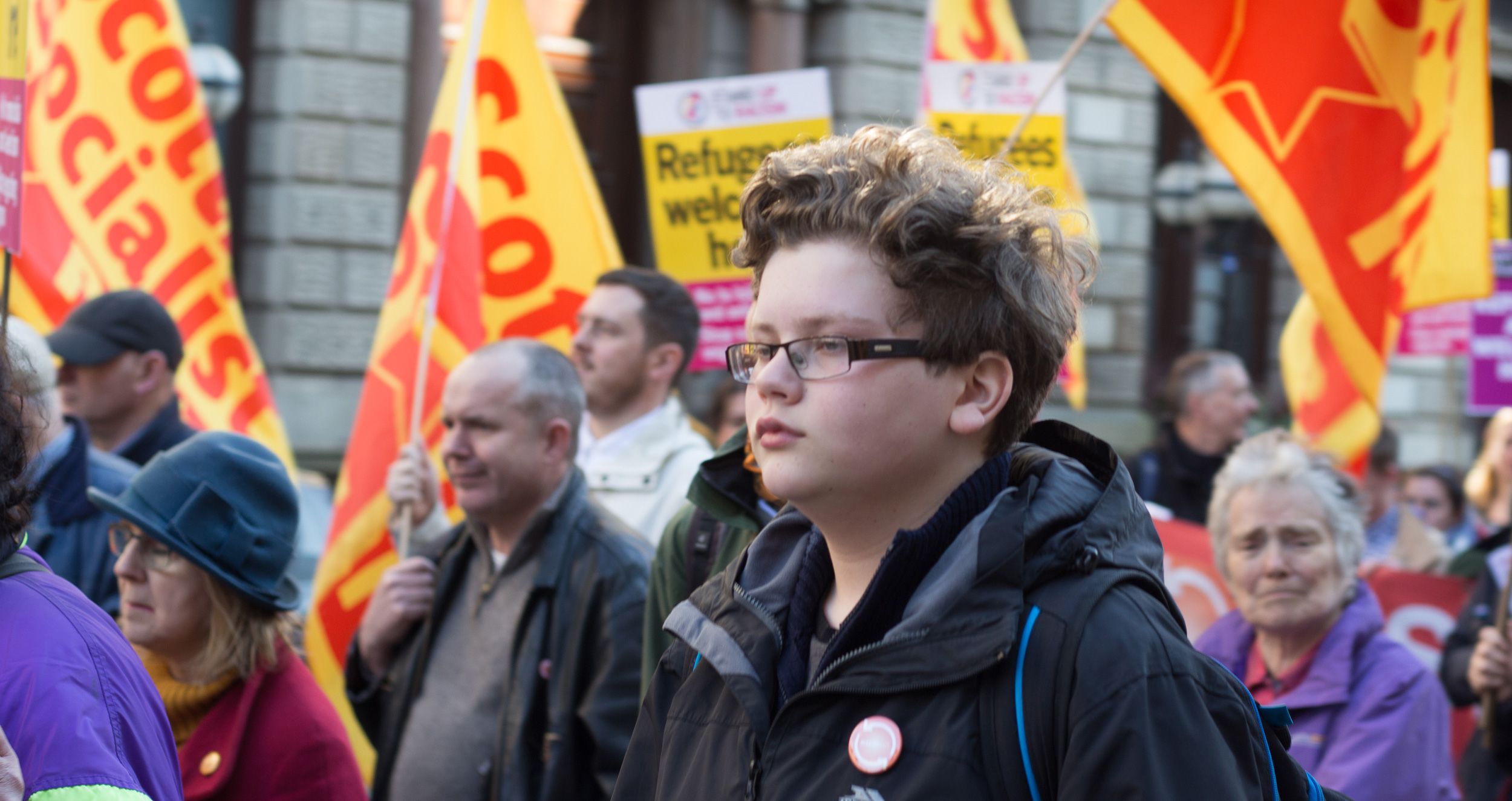RISE was right. Nicola Sturgeon’s ‘#BothVotesSNP’ strategy was inept.
One million SNP list votes, which could have elected RISE or Green MSP’s went in the bin. Thirty-one Tory MSP’s now sit at Holyrood instead, their party’s highest ever representation. The Tories won seats in areas they have never previously represented.
That this could happen in a country whose overwhelming political mood is anti-Tory beggars belief. But happen it did.
Scottish Tory leader Ruth Davidson was declared the election’s ‘big winner’ by the press after the SNP failed to secure its anticipated majority and Labour plumbed new depths. She rallied the unionist cause with aplomb and promised to ‘deliver effective opposition’ at Holyrood.
Meanwhile Labour’s woes continue. Their worst result for generations was even worse than predicted. They now trail the SNP and the Tories in Scotland. Their existential crisis and undeclared civil war shows no sign of abating.
Jeremy Corbyn was ‘persona non grata’ neither seen nor heard in the course of the entire campaign. And like Tony Blair in 2007 he never featured anywhere in Labour’s election material.
He appears to have evaded another coup attempt, but the right-wing of his party remain openly treacherous and he is powerless to stop them. Meanwhile Kesia Dugdale’s flagship policy of raising basic rate income tax by 1p in the pound to fund health and education was rejected by voters.
This rehashed policy, employed to appear left of the SNP, did not convince. Excruciatingly for Labour the policy was considered favourably by voters until they learned it was Dugdale’s idea. Labour have become ‘toxic’ in Scotland and promise to ‘return to the drawing board’ again!
At the same time however an unmistakable air of disappointment also hangs over the Independence movement.
A 2nd referendum seems unlikely any time soon. And this realisation further deflates a movement that knows our cause was virtually disowned by both the SNP and the Greens in this election. The case for independence has been undefended for two years now twice relegated to putting more SNP bums on parliamentary benches.
That does not augur well for the future.
The NO camp meanwhile is emboldened. It has made significant headway since its victory in 2014. Those who argue the Tories emergence as the undisputed face of unionism is beneficial to the YES side must equally recognise the SNP’s victory included voters who do not support independence. This is not a nationalist country.
Moreover the SNP need to be constantly reminded they cannot secure independence on their own. They need allies. And yet those allies have been alienated by the nationalist’s sectarian tactics since 2014. Rumours of a new SNP controlled initiative on Independence in the summer have been met with scepticism and a distinct lack of the enthusiasm that welcomed the launch of ‘Yes Scotland’ in 2012.
[pullquote type=’right’]Our ‘2nd vote for a 2nd referendum’ message simply did not resonate with YES voters in the way we had hoped.[/pullquote]People voted for Nicola Sturgeon’s party because it was anti-Tory. They expect her to fight the Tories far more effectively. The new Scottish Governments first big test comes in deciding whether or not to award the West coast ferry contract to the public bidder CalMac.Having put the contract out to tender they must choose between the CalMac tender or that of the private bidder Serco. Their decision is due in June.
RMT union sources have been privately advised the routes will remain in public hands. But that was before 31 Tory ‘privateers’ arrived at Holyrood.
The SNP will come under intense pressure from the right to privatise these routes. But the nationalists realise their credentials as a ‘left of centre social democratic party’ committed to public ownership will lie in tatters if they do buckle to neo-liberal pressure on this occasion.
The SNP leadership remain tight lipped.
Readers will be aware the nationalists privatised Scotland’s non-domestic water supply last year. And they signed over Edinburgh’s Sick Children’s hospital to a private company under their discredited Scottish Futures Trust in 2012.
Representing 59 of Scotland’s 73 constituencies as they do the SNP are also more susceptible to by-elections than any other party. And any setbacks there could have profound implications for the entire independence movement.
Having said all that of course the SNP are not the only ones facing huge challenges. The RISE result was very disappointing and must be fully assessed for lessons. Polling just 0.5% of the vote we suffered because we had no significant public profile and no electoral base. Our ‘2nd vote for a 2nd referendum’ message simply did not resonate with YES voters in the way we had hoped.
It was always going to be difficult of course to compete with the SNP juggernaut that so dominates Scottish politics today. And we didn’t compete. Yet it could have all been very different if those million List votes had not been in effect spoilt. But we are where we are.
The Scottish Socialist Party Annual conference in Edinburgh in June will discuss our ongoing role with RISE. Our party’s commitment to building the Left in Scotland remains undiminished.

